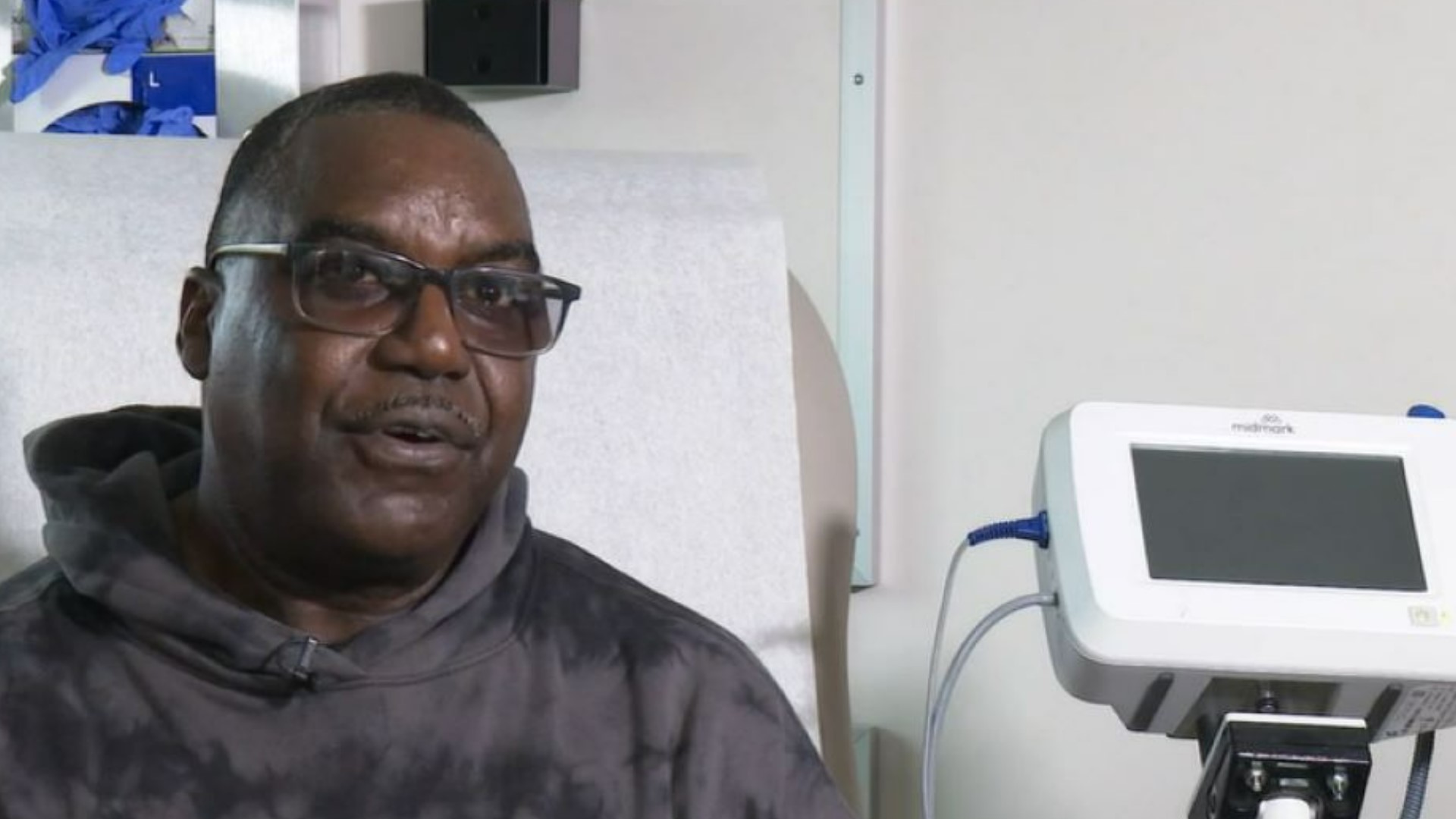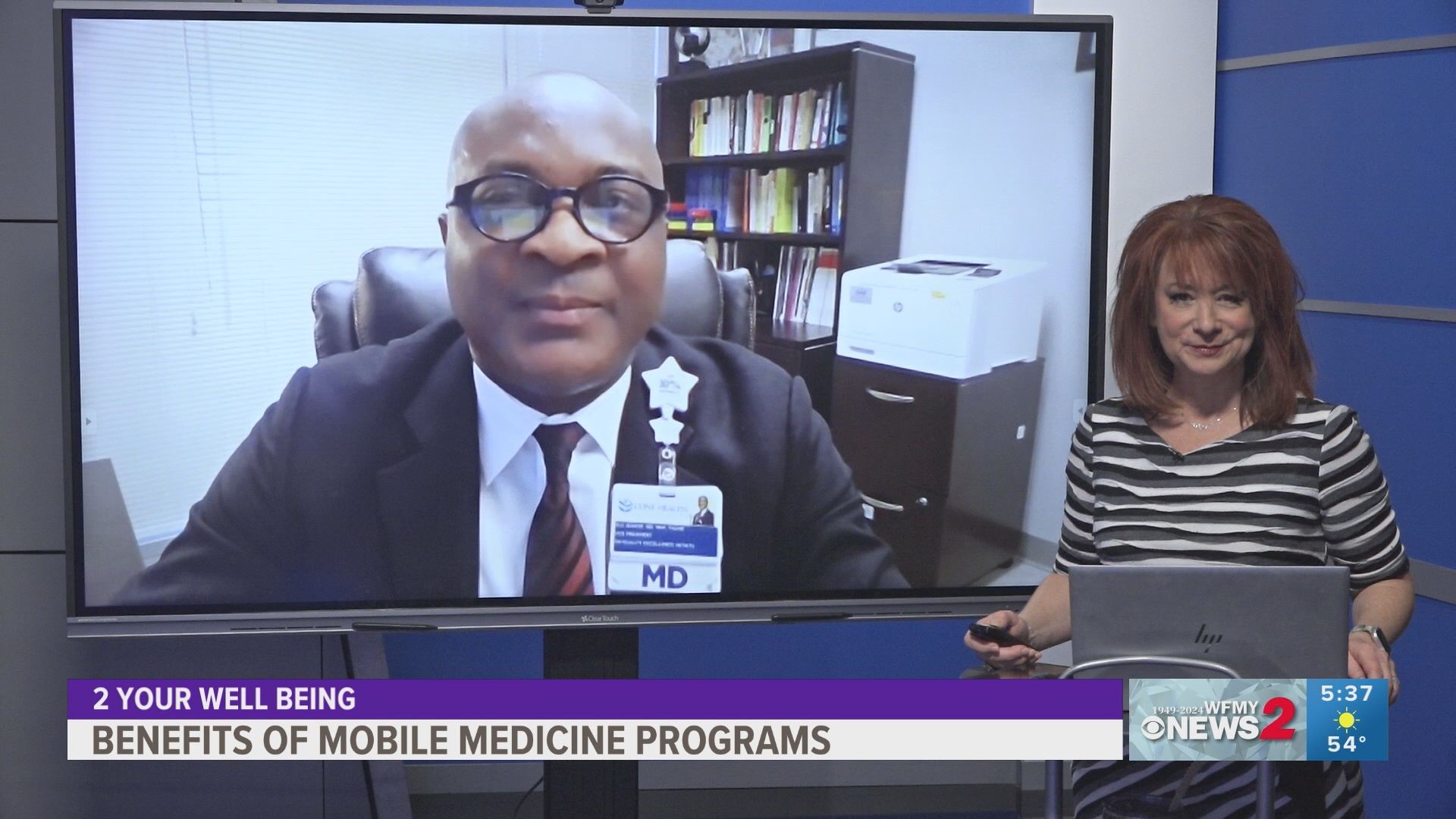GREENSBORO, N.C. — The season of sickness is upon us all and mobile health clinics can be an essential resource to those without access to quality healthcare.
But, who can use the mobile medicine services? What all is offered on them and how do you know where it will be? To answer those questions and more is Dr. Olu Jegede, vice president of Clinical Care - Healthy Equity for Cone Health.
Quick links:
What is a mobile medicine program?
"We take care of our people in the community through the mobile medicine program. Right now we have about three units. One is the mobile medicine, which is really clinic on wheels, and then we have the mobile screen event and the cancer screening, which is mobile mammography for breast cancer," said Jegede.
Let’s talk about the specific services available on each, starting with the Cone Health Mobile Medicine Unit.
"The mobile medicine itself is like the clinic that you go to, like you go to your doctor's office. We provide all care, including acute care and chronic disease management," said Jegede.
"The acute care could be like flu, you know, sore throat, or even common cold. And then the chronic diseases are those high blood pressure, high blood sugar, you know, cholesterol, asthma, or COPD. So you come to the clinic, you get checked like you were in your doctor's office," said Jegede.
"We see patients from age six and above and all ages."
Tell us about the Cone Health Mobile Screening Unit.
"The screening unit is really very important because our goal is to go upstream and make sure that people are not they know exactly what they may have. We can only do that by screening and when we screen we will tell you your result. We connect you to primary care and then from there, you get the care that you need,"
"When I see patients in my clinic, it's very unfortunate that you know, a lot of the time I'm seeing them for the first time after a life-changing event has happened. Like a stroke, like a heart attack, like maybe now they're on their way to dialysis. We really don't want that to happen. So we want to screen everyone and point their attention to those chronic diseases that sneak into us in our 40s and 50s," said Jegede.
The next vehicle is the Cone Health Cancer Center Mobile Screening Unit.
"A lot of people think because it is mobile mammography that it's only for breast cancer, but we're lucky to have a partner with our breast center and we can use a DXA room to do two things,"
"One is the mammogram for women aged 50 and above and also DXA screen, which is a bone scan. As to age, we also need that done. Now, if you are a man wondering what can you do on this unit, you can actually go there also and get screened for prostate cancer or for colon cancer. And also we do cervical cancer screening for all our women from age 21 and above, depending on their activities," said Jegede.
For people who may be concerned about costs or not having insurance -- how does that work with the Mobile Medicine Program?
"We see everyone regardless of their ability to pay. We have Cone discount, we have financial assistance. If you don't have insurance, we first maybe try to qualify you for Medicaid now that there's expansion. But if that doesn't work, we still have a way of making sure that we care for you. So through our Cone discount, you will go, probably not even have to pay anything," said Jegede.
What happens if you find out you need follow-up care or need to see a specialist?
"We always discuss the next step in their care with them when they come to us. We have a way of bridging them on the unit, you know, by doing some what we call consult, getting some advice from the specialist, what can the patient do in between before they come to see them? So on the unit, we have a referral system to connect our patients to specialists as well," said Jegede.
Over the past couple of years with COVID a lot of people have not gotten back on track with their annual wellness checks and screenings. How concerning is that and can the mobile medicine program help?
"You don't want things sneaking in on you. The screenings are so important. Colon cancer screening, prostate cancer screening, breast cancer screening, all those things, when they are caught early, we have technological advancement now that people can actually be cured. All we want to give everyone the fair and just opportunity to live as healthy and as long as possible," said Jegede.


